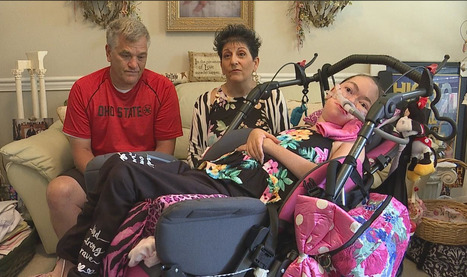Long-term follow-up study data for Novartis’ one-time gene therapy for spinal muscular atrophy has shown promising milestone achievements. Data from LT-001, Novartis’ ongoing 15-year long-term follow-up (LTFU) study of one-time gene therapy Zolgensma® (onasemnogene abeparvovec), revealed significant milestone achievements for spinal muscular atrophy (SMA) patients. The latest data from two LTFU studies LT-001 and LT-002 was presented at the 2023 MDA Clinical & Scientific Conference.
Highlights included:
- Sustained durability up to 7.5 years post-dosing; 100 percent achievement of all assessed milestones in children treated prior to SMA symptom onset
- Children in LT-001 treated after SMA symptom onset maintained or achieved additional milestones up to 7.5 years post one-time intravenous (IV) infusion
- All children (100 percent) in the presymptomatic intravenous cohort of LT-002 maintained or achieved all assessed motor milestones, including independent walking
- Additionally, children with SMA Type 2 treated with investigational intrathecal OAV101 maintained or achieved new development gains.
“…the fact that we’re seeing [some patients from the long-term follow up studies] maintain and, in some cases, gain motor milestones when they are nearly eight years old is truly transformational,” shared Dr Jerry R Mendell of Nationwide Children’s Hospital.
Additional data
Interim results from the 15-year LT-002 study was also presented. All patients (100 percent) were shown to maintain motor milestones achieved during their respective parent studies in the follow-up period. Results from the IV-administered cohort, which included 63 patients, demonstrated a single administration of Zolgensma provided consistent, substantial and durable efficacy over time. Notably, in the presymptomatic IV cohort, all children (100 percent) either maintained the highest milestone achieved during the parent study (walking alone) or achieved the milestone by the data-cut off. In total, six patients treated prior to SMA symptom onset and 16 treated after SMA symptom onset achieved new motor milestones in the follow-up period. There were no deaths, no serious treatment-emergent adverse events (TEAEs) related the gene therapy and no serious TEAEs that resulted in study discontinuation. The most frequently reported events were acute respiratory failure, dehydration, and pneumonia (each in five patients, 38.5 percent). No new safety signals were identified. Additionally, findings from the ongoing RESTORE registry were presented at the MDA conference. Patients with four or more copies of the survival motor neuron 2 (SMN2) gene treated with Zolgensma alone attained improvements in survival, motor function and achieved new milestones. The registry provides real-world evidence data to enhance the understanding of SMA patients cared for in routine practice. These results continue to highlight the importance of early identification and intervention to optimise outcomes for all SMA patients. “Data from the LT-001 and LT-002 studies showed that, regardless of the patient’s symptomatic status at the time of treatment, Zolgensma IV is an effective and durable treatment option,” commented Dr Sitra Tauscher-Wisniewski, Vice President Clinical Development & Analytics, Novartis Gene Therapies.
NICE’s recommendation of gene therapy Zolgensma
On 16 March 2023, the National Institute for Health and Care Excellence (NICE) recommended Zolgensma as an option in babies with presymptomatic 5q spinal muscular atrophy (SMA) with a bi-allelic mutation in the SMN1 gene and up to three copies of the SMN2 gene. This recommendation will allow routine access to onasemnogene abeparvovec, designed to help halt disease progression before symptom onset. Imran Kausar, General Manager at Novartis Gene Therapies UK commented on NICE’s decision: “Zolgensma will be the first treatment to be routinely commissioned for presymptomatic babies in England, and as it is imperative to diagnose SMA and begin treatment as early as possible, we welcome the decision by NICE for this recommendation.” There is no national newborn screening programme for SMA in the UK. Infants without a family history are only diagnosed if symptoms are identified. As this can take up to six months, an established programme is important. Following decision by the NICE committee that onasemnogene abeparvovec is effective in treating presymptomatic SMA, final guidance is expected to be published on 19 April 2023.
Novartis Press Release (March 20, 2023) available here:



 Your new post is loading...
Your new post is loading...









